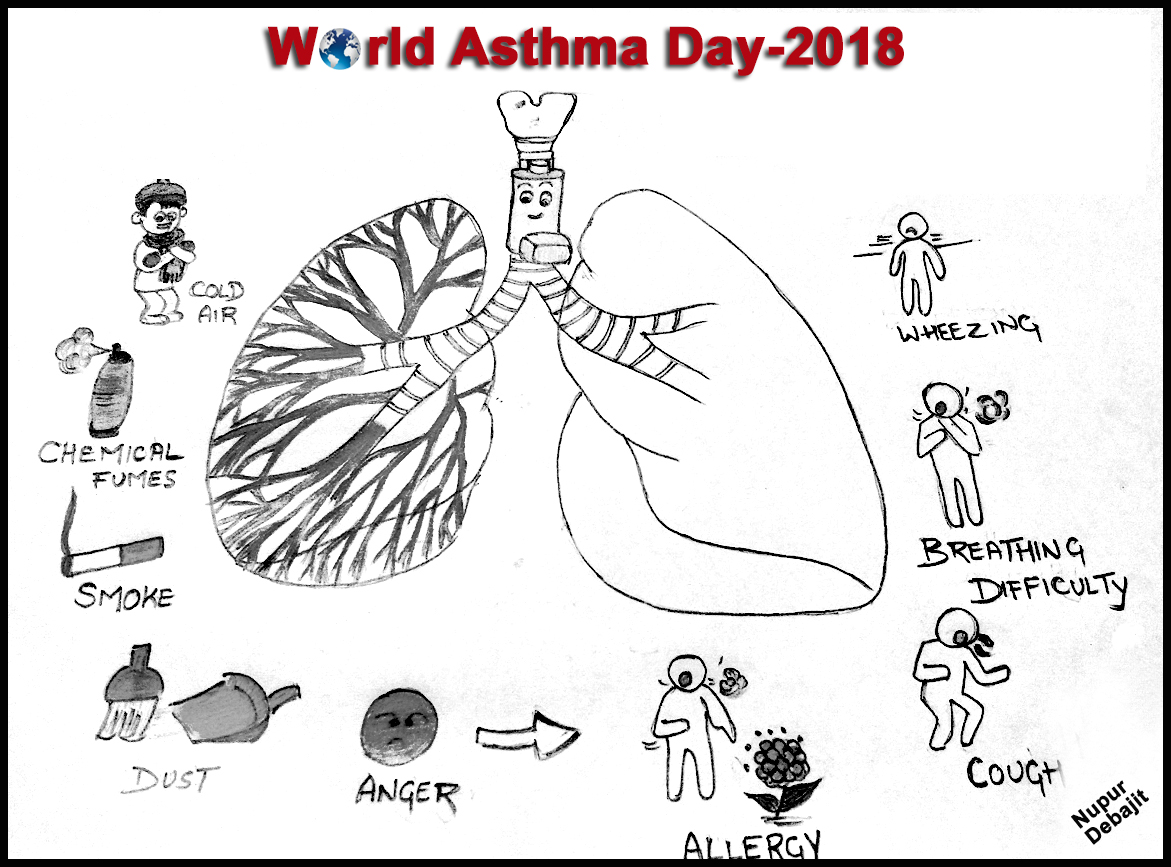We can find breathtaking moments in every day of our life; the birth of a first child, the view from the top of a mountain, a roller coaster ride. But with asthma; our breath is taken away from us. There are 300 million people worldwide who suffer from asthma. World Asthma Day is organized by the Global Initiative for Asthma (GINA) since 1998 to improve asthma awareness and care around the world.
Asthma is a heterogeneous clinical syndrome affecting the lower respiratory tract. It presents as episodic or persistent symptoms of wheezing, dyspnea, air hunger, and cough. Symptoms may be exacerbated by exposure to allergens and irritants, viral and bacterial upper respiratory tract infections, sinusitis, intense physical activity, and cold air. Tobacco smoke is a common exacerbating factor in patients with asthma. These triggers can result in swollen airways and tightening of the muscles around the airways making it difficult to breathe. Nocturnal symptoms indicate more severe disease and cause awakening in the early morning hours (for those with a normal diurnal schedule). The clinical presentation of asthma is variable with respect to severity, underlying pathogenic mechanisms, quality of life, and response to treatment.
Even though asthma can develop at any age; its onset is more frequent in childhood and young adulthood. Heritable factors for developing asthma include genes regulating IgE-related mechanisms, glucocorticoid response, airway smooth muscle development, and components of the immune system (HLA-G). It is diagnosed by assessing the clinical history and breathing tests. No permanent cure has been discovered yet. However, it can be controlled by medications and effective management through holistic approaches such as Yoga.
Asthma is a heterogeneous clinical syndrome affecting the lower respiratory tract. It presents as episodic or persistent symptoms of wheezing, dyspnea, air hunger, and cough. Symptoms may be exacerbated by exposure to allergens and irritants, viral and bacterial upper respiratory tract infections, sinusitis, intense physical activity, and cold air. Tobacco smoke is a common exacerbating factor in patients with asthma. These triggers can result in swollen airways and tightening of the muscles around the airways making it difficult to breathe. Nocturnal symptoms indicate more severe disease and cause awakening in the early morning hours (for those with a normal diurnal schedule). The clinical presentation of asthma is variable with respect to severity, underlying pathogenic mechanisms, quality of life, and response to treatment.
Even though asthma can develop at any age; its onset is more frequent in childhood and young adulthood. Heritable factors for developing asthma include genes regulating IgE-related mechanisms, glucocorticoid response, airway smooth muscle development, and components of the immune system (HLA-G). It is diagnosed by assessing the clinical history and breathing tests. No permanent cure has been discovered yet. However, it can be controlled by medications and effective management through holistic approaches such as Yoga.

